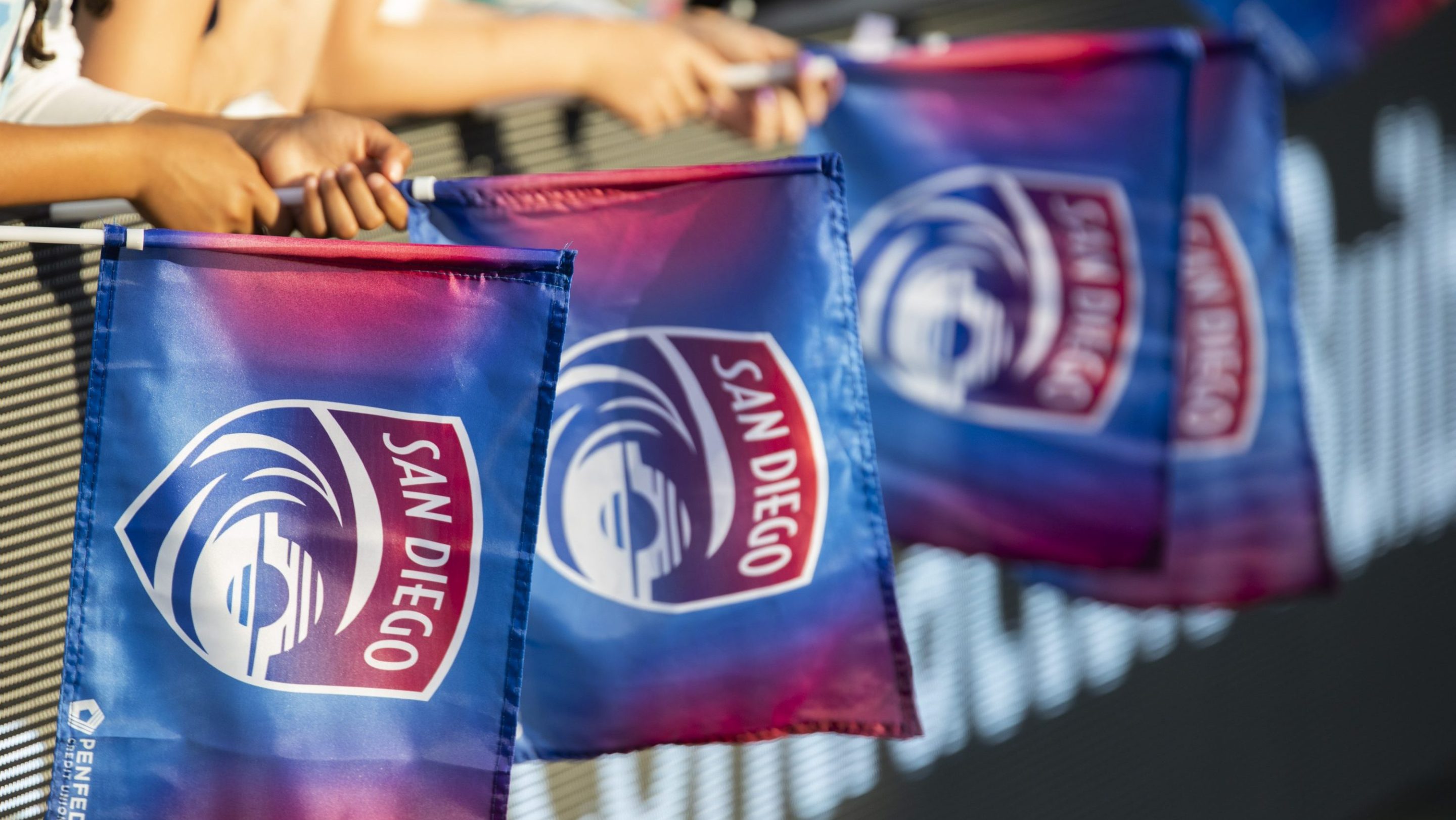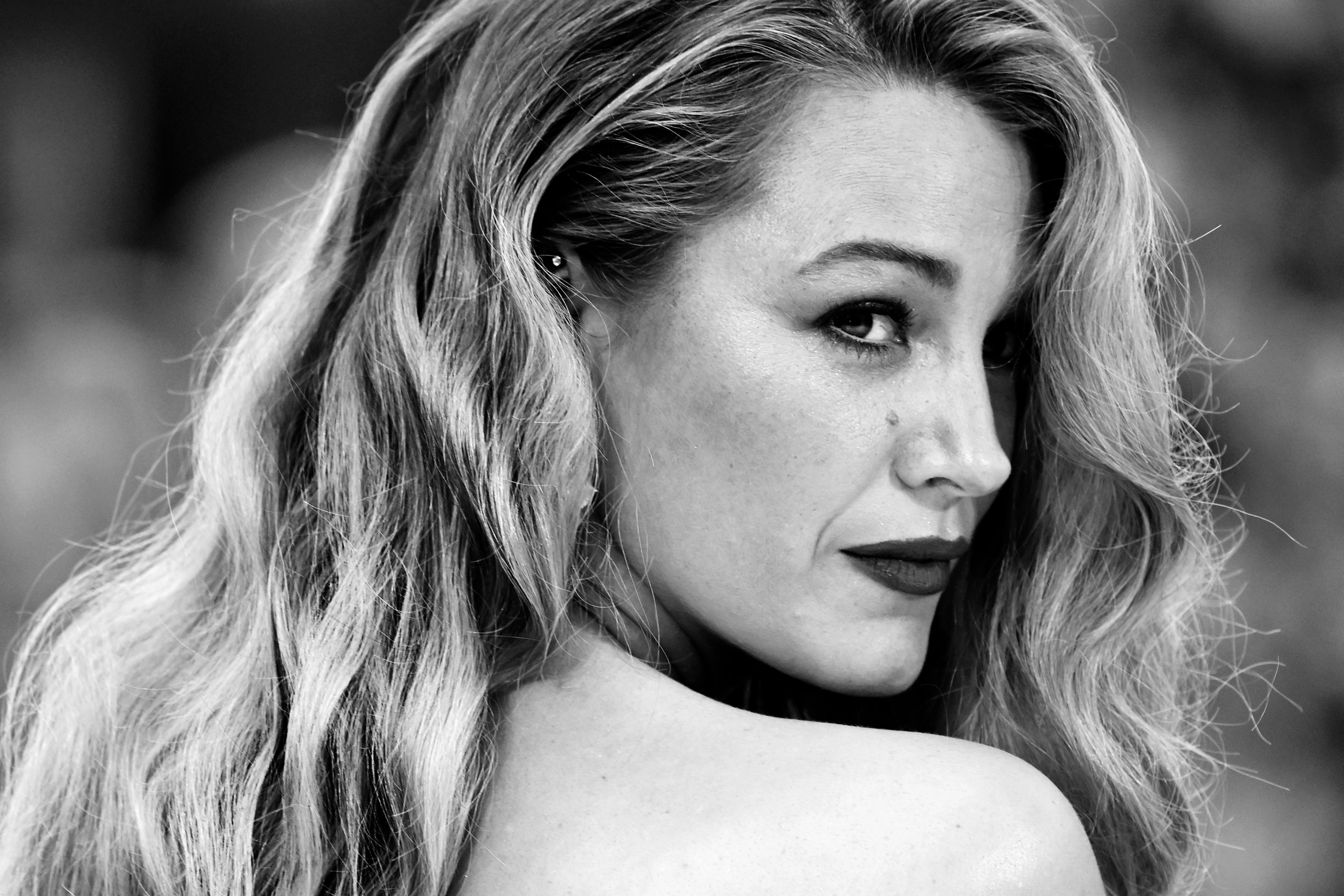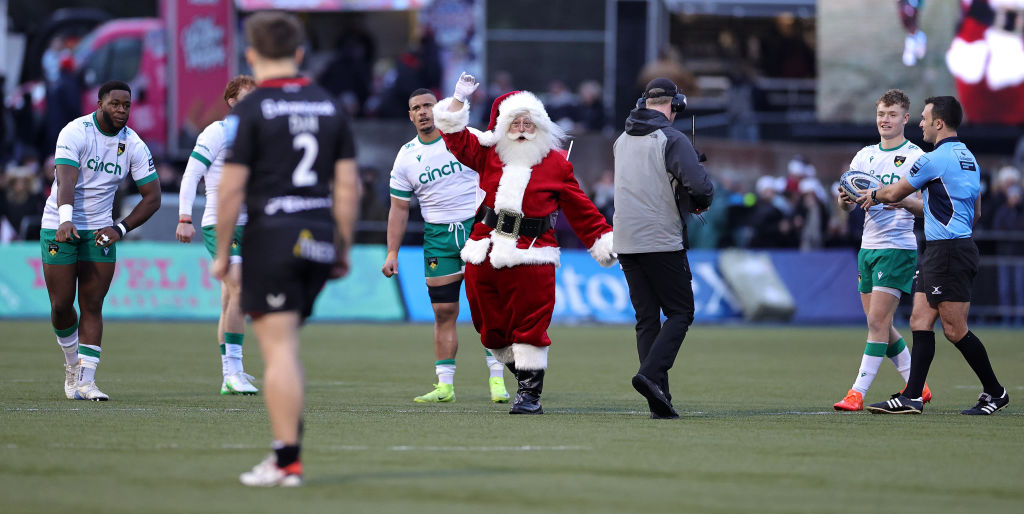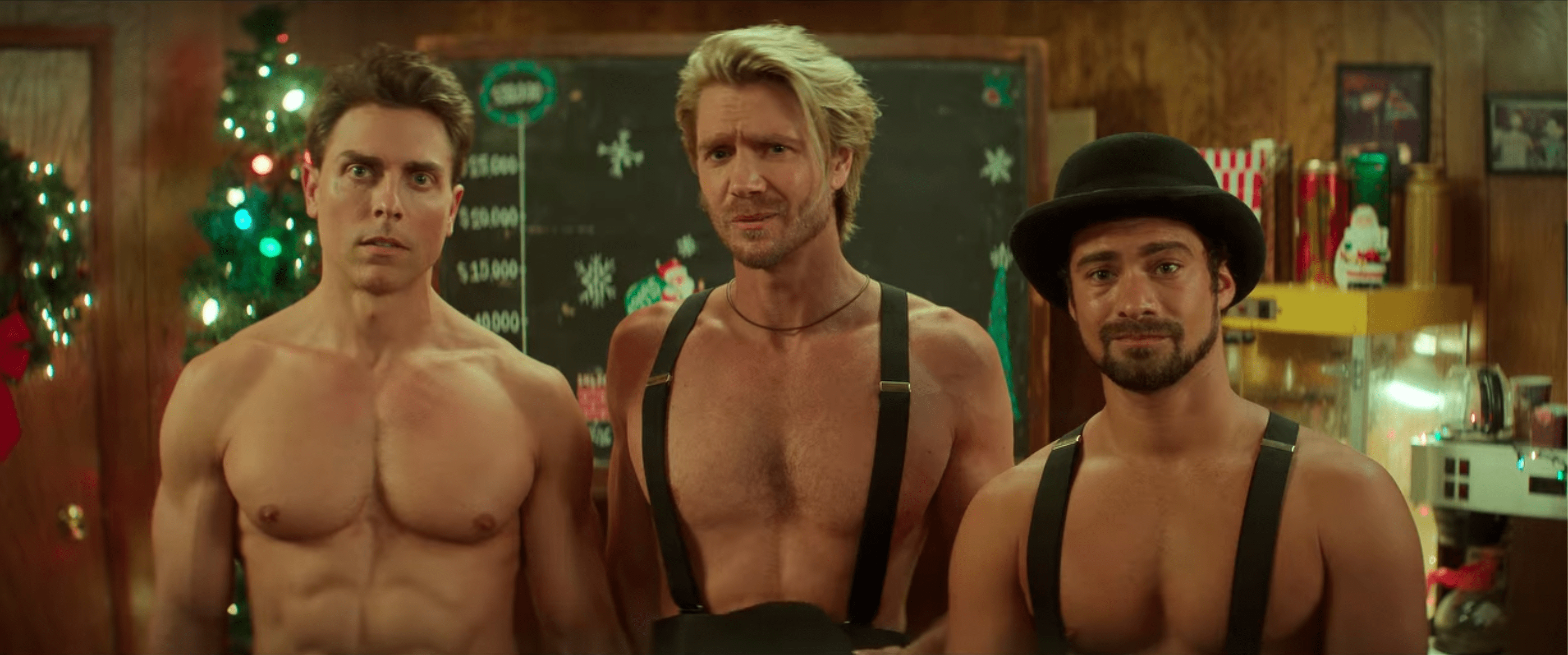Jill Ellis wore a smile in June of 2021 when she appeared in a press release photo announcing the new San Diego NWSL club, and her as its president. The former U.S. Women's National Team coach who led the team to back-to-back World Cup wins—making the United States one of just four countries in the competition’s men’s and women’s history to successfully defend a title—wore sunglasses and all black with a striking cream coat as she strolled along a sandy beach. Days later, the team posted a sit-down interview with Ellis in which she said the team’s ownership "really wanted to do something special on the female landscape and create an environment where it’s run by females." At a press event, Ellis said the Wave would stand as "not simply as a football club, but as a platform for those who dare to dream."
This week, five former Wave employees—all women—filed a lawsuit against both the Wave and the NWSL in San Diego Superior Court. The lawsuit asserts 15 claims, including disability discrimination, racial discrimination, sexual harassment, failure to investigate and prevent discrimination and harassment, retaliation, wrongful termination, and retaliating for engaging in protected activity. Overall, it portrays the Wave in stark contrast to the club’s marketing as a sports team that would be more than just a sports team and with a highly accomplished woman in charge.
The women bringing the suit includes Brittany Alvarado, who previously spoke out about the Wave in July and was subsequently sued by Ellis for defamation.
The lawsuit does not name Ellis as a defendant, though her name comes up in the complaint dozens of times. Examples given in the lawsuit about the working conditions at the Wave include:
- Racial discrimination against three former employees.
- Sexual harassment and retaliation against a former employee after she said she was sexually assaulted by a then-Wave employee.
- Failure to investigate and prevent discrimination involving four former employees.
- Reports to the NWSL going as far back as November 2022 saying “directors routinely left Ellis’s office in tears.”
That the NWSL, or even women’s professional soccer writ large, has not lived up to the lofty ideals it professes isn’t a new revelation. For years, one report after another has come out detailing abusive coaches and unsafe workplace conditions in women’s soccer, both in the U.S. and abroad. But these stories have mostly focused on the coaches and athletes, a natural occurrence given that players are the most visible part of the sport.
What the lawsuit asserts is that abuse, discrimination, and harassment are not issues isolated to athletes. The complaint said the NWSL knew about problems within the Wave dating back to November of 2022, and conducted two separate investigations, one in 2023 and one earlier this year. The NWSL previously defended its investigations in a statement, saying it made the safety, health and well-being of everyone "our highest priority," hired "qualified independent investigators" to look into reports of potential misconduct, and "mandated corrective action in every instance where reports have been corroborated, up to and including the removing of individuals who do not live up to our standards and values."
But, per the lawsuit, those investigations "were biased and discounted by the league, leading to a failure to address systemic issues within the organization."
Defector Media reached out to the NWSL, the Wave, and Ellis’s lawyers. In response, Wave spokesperson Megan O'Keefe sent a statement saying, "This lawsuit concerns allegations initially raised on July 3, 2024. As this matter is an ongoing legal proceeding, we are unable to comment further at this time."
An NWSL spokesperson responded with a statement saying: "The safety, health, and well-being of everyone associated with our league is our highest priority. We take serious any and every report of potential misconduct, hire qualified independent investigators to review those allegations thoroughly, and act when allegations are supported by the facts uncovered. We will not comment specifically about an active legal matter."
The complaint argued the NWSL should have known Ellis’s tenure at the Wave would be a problem as early as October of 2022, when the Sally Q. Yates report came out. The report is a more-than-300-page documentation of systemic physical, sexual, and emotional abuse across every level of women’s soccer in the United States. It mentioned Ellis’s name, in her capacity as USWNT head coach, multiple times. Most of those mentions were connected to then–Portland Thorns coach Paul Riley and then–Chicago Red Stars coach Rory Dames. Both coaches were reported by players for abuse and creating hostile environments, and Ellis was among the people at U.S. Soccer who received that information.
Riley and Dames would both keep their jobs until players began speaking out publicly in 2021.
The Yates document also touched upon Ellis hiring Christy Holly to do per diem work for U.S. Soccer; Holly would later be fired from Racing Louisville and banned from the NWSL for sexual misconduct.
A second report done on behalf of the league and the players' union and Yates found an accountability and reporting gap in the league, due in part to the unique agreement between the NWSL and U.S. Soccer that left unclear who bore responsibility for taking action. U.S. Soccer not only sanctioned the NWSL, it paid USWNT members an additional salary to play in it as part of an allocation system that ran until 2022. The federation also acted as management for the league until 2021. In response to the report, the NWSL amended its anti-harassment policy to outline reporting policies and procedures, supervisory responsibilities, and added an anonymous reporting hotline.
The lawsuit mostly follows the experiences of the five former employees cumulatively stretching from early 2022 to this year. Some were part of the club’s inaugural 2022 season, while others were hired by the club in 2023. A few spoke out earlier this year about workplace conditions at the Wave; in response to the statement made by Alvarado, the Wave said her account contained "inaccurate and defamatory statements," included a fabricated email, and that the claims made in it were "categorically false."
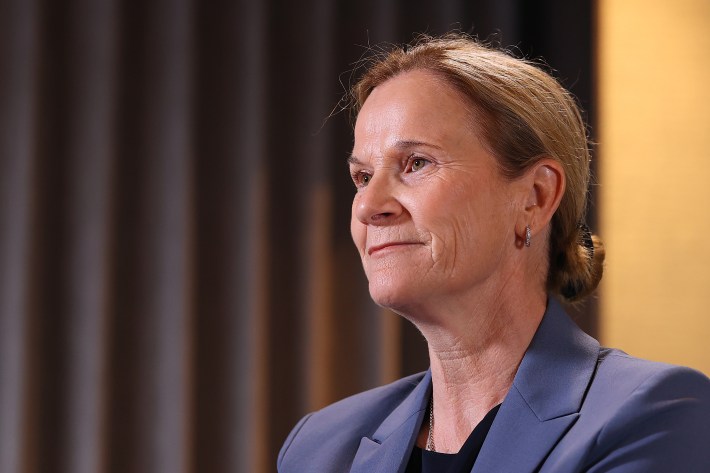
Ellis later released a statement to the Associated Press, before she sued Alvarado, that said third parties had "assisted us in evaluating our workplace" and had not found any wrongdoing by the club. It also called what Alvarado said "false accusations" that "are not only personally damaging but also take away from the incredible work and progress we’ve achieved together as a team."
Neither the Wave nor Ellis directly addressed the statements made by three other former Wave employees on Twitter on the same day as Alvarado. And though the lawsuit does not name her as a defendant, it said Ellis bears some responsibility for what follows because Ellis, as the club’s president, "not only set the tone for an abusive and toxic workplace culture, but failed to install any qualified safeguards or checks on her own conduct." The lawsuit said she once asked "random men in Kansas City about their penises, making Wave employees and strangers alike uncomfortable" and her lack of leadership led the club to employ "a man many would identify as the ‘office creeper,’ even after an employee reported that he sexually assaulted her."
Of the five people filing the lawsuit, Victoria Diaz was the first hired by the Wave, getting a job with the club in February of 2022 as a creative services manager. Diaz lived in Los Angeles and planned to move to San Diego once hired, but the region’s inflated housing prices made it hard for her to find a place, the lawsuit said, so she got by staying in hotels or crashing with coworkers while working more than 80 hours a week. Months into her job, in September, Ellis suddenly confronted Diaz about this.
According to the lawsuit, Ellis told Diaz that her lack of a permanent home in San Diego was "pretty embarrassing" and "isn’t right." She told Diaz to find a place in San Diego within a week and "continued to publicly belittle her," the lawsuit said, telling Diaz that she "wasn’t working hard enough" to find a place in San Diego. Diaz’s immediate supervisor did nothing to defend her. It left Diaz, the lawsuit said, feeling "disrespected, unsupported, and humiliated."
Afterward, Diaz's work environment grew more hostile, the lawsuit said. She was excluded from key meetings, and had her contributions ignored. When Diaz went to the club’s 2023 Halloween party, she saw Megan Wakefield, the company’s then–vice president of people and culture who is of European descent, dressed in a costume associated with Dia de los Muertos, the lawsuit said. Diaz, who is Latina, found it to be a "grossly insensitive act," per the lawsuit, and it left her feeling even more alienated.
(Wakefield comes up multiple times in the lawsuit, though she is not being sued. Per the complaint, before her position with the Wave, Wakefield was Ellis’s wife’s "friend from Jazzercise." Wakefield’s LinkedIn confirms she previously worked as human resources director for Jazzercise before the Wave. Wakefield left the Wave earlier this year, and when she did, the lawsuit said, "representatives from the NWSL, in full recognition of the wholesale failure to hire competent and appropriate human resources staff, apologized to many San Diego Wave employees and stated they would make sure Wakefield’s replacement was 'qualified.'")

Diaz stayed and tried to grow into her role and advance within the organization, the lawsuit said, but every job she expressed interest in was given to a white male colleague. She saw other people get raises or promotions, per the lawsuit, while her budget requests for "essential hires" were turned down. When she asked why a white male colleague kept getting opportunities instead of her, her supervisor told her, per the lawsuit, that "she was needed for marketing emails."
The Wave terminated Diaz on Jan. 4 of this year. A senior director at the Wave, Tyler Emerick, per the lawsuit, cited as a reason for her termination that she “no longer wanted to do marketing emails.” She was not offered severance but was pressured into signing a non-disclosure agreement, the lawsuit said, which she refused. (Emerick is not named as a defendant in the lawsuit.)
Abigail Lozano began her job with the Wave, as a community relations coordinator, about six months after Diaz. In January 2023, Lozano was having a one-on-one meeting with Ellis about the club's community engagement work when the conversation shifted to Lozano's immigration status and why Lozano "did not want to be sponsored" by the Wave. The conversation, the lawsuit said, left her "uncomfortable and humiliated."
Later that year, Lozano learned she had been granted "parole" to see her sick grandparents in Mexico, the lawsuit said. It would be the first time she had the legal ability to leave the United States, and her plan was to work remotely while in Mexico and take Fridays off as personal days from late May to mid-June. Her supervisor said this was OK, the lawsuit said, but later added that Ellis would need to approve the leave. Lozano thought it was odd that her request, but not others', needed Ellis’s OK.
Lozano then received a request to reschedule the trip to "minimize her absence to just one game," which the lawsuit said Lozano believed came from Ellis. But Lozano couldn't reschedule, the complaint said, because she "would not be able to change her travel window for advanced travel 'parole.'" Her supervisor eventually told her that Ellis decided Lozano could have one week of remote work because Ellis "did not want employees 'disappearing during the season,'" the lawsuit said. Ellis "reluctantly" approved Lozano for two weeks after further discussion, per the complaint, though this conflicted with the Wave's policy of unlimited time off managed by immediate supervisors.
When she got back from Mexico, the lawsuit said Lozano noticed her work environment "changed completely" and she had "a series of concerning interactions and increasing tension within the work environment."
Lozano worked overtime for the Wave’s 2023 Pride event, which her supervisor approved, but vice president Justyne Freud took issue with the overtime pay, the lawsuit said, "leading to a workplace dispute." In July, at a team outing to then-team owner Ron Burkle’s home, Ellis demanded Lozano organize a diversity, equity, and inclusion meeting to address the "failure" of the Wave's Latino heritage logo. On July 27, the lawsuit said Lozano was "ambushed" by Emerick and Freud in a meeting, where they told her that they were now her direct supervisors. (Freud is not named as a defendant in the lawsuit.)

A day later, at another meeting, Freud made Lozano feel "humiliated and incompetent" for not knowing the exact location of a bank used by the team's impact fund, per the suit. In August, Freud went up to Lozano in a very "aggressive and threatening manner," the lawsuit said, demanding contacts she had already provided.
Around this time, Lozano learned she was on a performance improvement plan she hadn't been told about. On Sept. 20, during a meeting with Freud, Emerick, human resources, and her new boss, Lozano said the emails she got from Freud "had been causing her severe anxiety, leading her to break down," the lawsuit said.
Lozano told Wakefield the next day that she wanted to resign and would tell the team when she felt comfortable, the lawsuit said. About a week later, Wakefield began pressuring Lozano to tell her boss, Shannon MacMillan, about the resignation. When Lozano did tell MacMillan, the lawsuit said, she told Lozano that Wakefield had already told her.
Jane Doe was also among the Wave's first-season hires. She joined the club as a senior communications manager in July of 2022. She had moved for the position, so she took up a coworker on his offer to hang out and show her around the city, according to the lawsuit. They agreed to meet up at a bar near her home.
While they were out, the coworker pressured her into "inappropriate activities, including a game of 'sexy Jenga,'" the lawsuit said. Later they went back to her apartment where he pressured Doe, who was drunk, into sexual acts to which she did not consent. The ensuing sexual assault, per the lawsuit, left Doe "bleeding for a week."
Doe didn't report what happened to law enforcement or her supervisors because, the lawsuit said, she feared "retaliation and the potential loss of her job." There also was no employee handbook to tell her what to do. According to the lawsuit, the Wave "did not have so much as an employee handbook until midway through 2023."
The coworker continued to harass Doe, the lawsuit said, "including additional nonconsensual penetration and threats of consequences at the workplace." Despite this, Doe did well at work, the suit said, and received praise for her work on the team's media impressions.
In June of 2023, the workplace became hostile for Doe, the lawsuit said. She suffered personal difficulties, including a critical illness to her cat, while her workload increased even more due to the World Cup. When Freud asked her at the last minute to attend a road game in Freud’s place, Doe said she couldn’t because her cat was in and out of a veterinary emergency room. Afterward, the lawsuit said, Freud started criticizing Doe's work and Doe's requests for help were dismissed. When Doe asked for an intern to help with her workload because of "overwhelming workloads and burnout," according to the lawsuit, Freud told her that her job "was a ‘one-person job.'"
Doe developed a respiratory infection in mid-September, the lawsuit said, and it kept getting worse, leading her to a breakdown. Freud did let her work from home while she was sick and covered for her in-person duties, the suit said.
In a one-on-one meeting with Freud on Sept. 18, Doe told Freud about her struggles with anxiety, depression, and overwhelming stress. Freud offered her a week off with sick leave during a bye week, the lawsuit said. Then Wakefield reached out to Doe about needing to know what the doctor said "so they could protect her," according to the lawsuit. When Doe asked for clarification, Wakefield gave her vague answers, the suit said, but added that Doe should "attend her scheduled psychiatrist appointment."
Doe told Freud about the full extent of her mental health struggles on Oct. 12, including a binge eating disorder and difficulties with life tasks and her job. This, according to the lawsuit, was when Doe told Freud that a coworker had traumatized her and made it hard to show up at work, though she did not name the coworker, and that she was aware of an ongoing investigation into the Wave. (Per the lawsuit, the Wave have been investigated twice: once between February 2023 and September 2023, and again from February 2024 to May of 2024.)
The next day, Wakefield placed Doe on leave against her will, according to the lawsuit.
Doe asked Wakefield if she could keep working because leave would cut her off from her community and support. On Oct. 16, Doe was called into a meeting with Wakefield and Freud, where she was wrongfully terminated, the lawsuit said, "allegedly for performance based reasons." The Wave gave her a deadline to sign her severance agreement, according to the lawsuit, even though Doe told Wakefield that she was in shock and bedridden for days. Because of this, the suit said, Doe did not fully understand the terms of the severance agreement, which included NDA language.
Afterward, Doe asked how to report an assault by a coworker. The Wave sent her a link to a workers' compensation injury form.
Doe did participate in the 2024 NWSL investigation. The lawsuit does not go into great detail about the investigation, but does say this:
For example, when defendant NWSL investigated Plaintiff Doe's complaints of sexual assault by a coworker, instead of investigating whether Defendant Wave should take any action because of those complaints, defendant NWSL focused its investigation only on whether defendant Wave had any knowledge of the sexual assault taking place. Horrifyingly, defendant NWSL told plaintiff Doe during the investigative read out that defendant Wave had not been on notice of her sexual assault because she used the word "assault" instead of the phrase "sexual assault" when reporting the incidents. Defendant NWSL’s own policy does not use the term "assault." Rather, it uses the vague term "misconduct." There is no reason to require a sexual assault survivor to use magic language when reporting.
Kristina Perez was hired by the Wave in March of 2023 as an events and engagement coordinator. The job went well at first, and she quickly earned a promotion. On April 29 of this year, Perez said in Slack that she would work from home for a day to care for her sick daughter while still attending any work meetings. After a virtual work meeting, the Wave’s new vice president of people and culture, Nancy Stewart, told Perez that "her employment was being terminated effective immediately," the lawsuit said, because of "a letter received from a partner." Perez said in the lawsuit that she had no prior warnings nor disciplinary actions. She asked to see the letter, the lawsuit said, but the Wave would not provide it. They offered her severance if she signed a non-disclosure agreement, which she did not.
In her lawsuit, Perez said she has since applied for new jobs but "has been rejected because of comments made by defendant Wave telling such companies not to hire her."
Brittany Alvarado was hired in March 2023 as a video and creative manager. Her difficulties at the Wave, per the lawsuit, began with her equipment requests. When the Wave hired her, Alvarado was told she would have autonomy over the equipment budget and would get the tools she needed to do her job. But, from the start, Alvarado had trouble getting the equipment she needed, the suit said.
Alvarado asked to work on Canon equipment, but according to the lawsuit, the Wave told her she had to use Sony, which she didn’t know as well, due to a corporate partnership. On March 29, Alvarado got the OK to purchase "minimal" Canon equipment, but it still wasn’t enough, per the suit, so she began using her personal gear. She got reprimanded in September for not taking still photos at a work assignment even though the Wave still had not given her professional photography equipment. Instead, the suit said, her supervisor told her she should borrow equipment from a coworker or use her iPhone.
Alvarado brought her concerns to Wakefield, but, according to the lawsuit, all Wakefield offered Alvarado was the chance to directly address her supervisor, Emerick, which Alvarado had already done. That same month, Alvarado reached out to the NWSL hotline. She later learned her complaint to the hotline, the lawsuit said, was "assumed to be part of an ongoing investigation, in which she was not involved."
"This demonstrates the NWSL’s inability to competently conduct 'independent' investigations or accurately document complaints," the lawsuit said, "let alone take corrective action to protect staff and players from violations of the law."
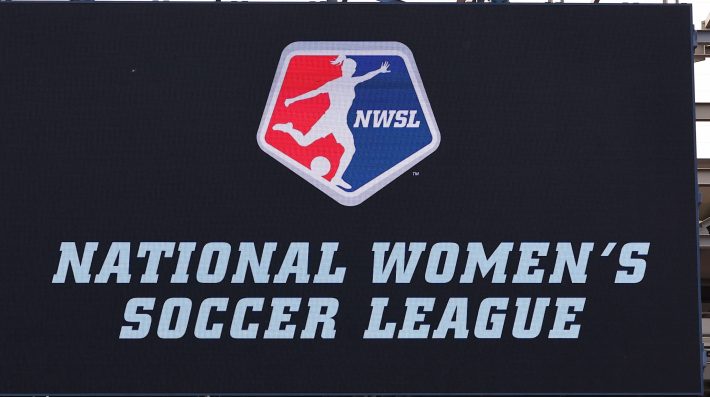
The lawsuit detailed more issues for Alvarado as the year went on. She was excluded from key decisions, "systematically marginalized" within the company, and "effectively sidelined" during the Wave’s media day, when an external creative agency was hired to do her job, the lawsuit said. She believed it was in retaliation for her continued "expression of concerns regarding the treatment of employees," according to the suit. In fact, per the lawsuit, Emerick stopped communicating with her after she began raising questions about employment law violations.
In February, Alvarado sought medical attention for her mental health, as she had anxiety and depression, the lawsuit said. On Feb. 12 she asked the Wave for work accommodations, the lawsuit said, specifically either a quiet space to edit videos or permission to edit videos at home. The Wave, the suit said, "refused to engage in the process." Weeks later, Freud tweeted about the club's jersey launch and mentioned every member of Alvarado's team except her. When March began, the Wave put Alvarado "on a clearly retaliatory 'unpaid leave of absence,'" the lawsuit said. Days later, on March 6 of this year, Wakefield resigned.
The Wave brought in a new vice president of people and culture, Stewart. Yet, throughout the process, the lawsuit said, the Wave’s "sole focus" remained on getting Alvarado’s equipment back, not on her mental health concerns and accommodation requests.
About June 4, the Wave told Alvarado that if she did not come back to the office it would be considered a "voluntary resignation," according to the lawsuit. A day later, Stewart sent her an email telling her there was no private workspace for her role. On June 7, Alvarado emailed Stewart to resign. The club told her they had accepted her resignation three days later.
Though Alvarado is just one of five former employees suing, she has been the most public face of the group of people speaking out about what they described as the club’s toxic workplace conditions. On July 3, a few weeks after the club abruptly fired head coach Casey Stoney, Alvarado published a statement on Twitter about her experience at San Diego.
"Despite its public proclamations, the organization often perpetuated discrimination against women and demonstrated a complete disregard for their long-term mental health," her statement said of her former employer. As for the league that oversaw the Wave, Alvarado wrote, "Regardless of repeatedly highlighting these pervasive issues to the NWSL, the league has consistently failed to take meaningful action and has instead turned a blind eye to a pattern of profoundly damaging behaviors."
She called for the NWSL to remove Jill Ellis "to finally protect the staff and players they have neglected and ignored for far too long."
In a second tweet, Alvarado included an image of an email. She wrote that it was a copy of an email that she received "from a senior leadership member" 10 days after her resignation. "These are the exact behaviors and personnel that have been consistently enabled under Jill Ellis’s presidency," she wrote.
Beneath the subject line, "Pathetic," the text read. "You are the most pathetic person I’ve ever met. You must have no sense of work ethics or integrity. We are ecstatic you are no longer with the club." The message had an email signature but Alvarado blacked out the name.
Alvarado told Defector Media that she blacked out Justyne Freud’s name in the screenshot because she felt it would put too much focus on Freud and not the overall issues at the Wave under Ellis. Hours after her tweet, the club would issue a statement saying the email was fake. Before the month was over, Ellis sued Alvarado in San Diego Superior Court, claiming defamation and intentional interference with contractual relations.
Defector has reached out to Ellis's lawyers, Ryan J. Stonerock and Lan P. Vu, for comment. But she does give her account of what happened through her lawsuit against Alvarado. (If the names of Ellis's lawyers sound familiar, they are part of the same law firm—Harder Stonerock—that has represented Donald Trump and Peter Thiel. Founding partner Charles J. Harder didn’t work on Ellis's case, but did represent Hulk Hogan in his lawsuit that bankrupted Gawker Media.)
Ellis's lawsuit claimed that the email that Alvarado shared was from a fake Hotmail account pretending to be Freud. It said the account also sent a fake email pretending to quit to the NWSL commissioner, Jessica Berman, and a fake email to a Wave employee telling them that they were being fired. The lawsuit said Ellis believes that the fake emails came from a former Wave employee who is either friends with or in contact with Alvarado.
Defector asked Alvarado multiple times if she sent the email and she denied it. When asked whom she believed sent it, Alvarado said she believed it was Freud.
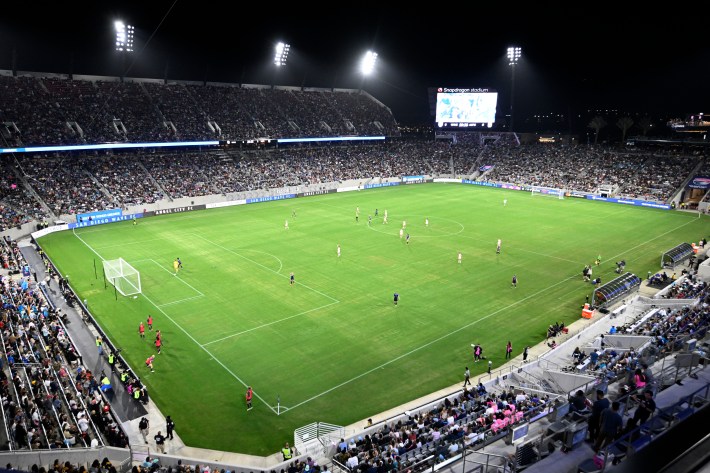
The lawsuit goes into its own recollection of Alvarado's work history with the Wave, saying she had performance issues and needed to "improve her attitude" in the office. Another Wave employee once told their supervisor that Alvarado was "asking other employees to add to a Microsoft Word document that could be used to show that the organization had an allegedly bad work environment and that it did not care about mental health issues," the lawsuit said. After resigning, per the lawsuit, Alvarado took too long to return her equipment.
The lawsuit closed by noting that to Ellis's knowledge, no complaint had been lodged directly against her to the federation or the league, and the league investigation cleared Ellis and the Wave in April. It said Alvarado's statement was false because it "falsely groups and/or equates Ellis with the coaches investigated" for abuse.
The lawsuit opened with language evoking how Ellis is viewed by many people in the world of women's soccer, calling her "a highly-esteemed and reputable figure in the world of women’s professional soccer and one of the winningest coaches in history of the sport."
It's true that Ellis cuts an impressive figure across women’s soccer. She’s been the subject of plenty of fawning articles, been praised by former USWNT players, won those back-to-back World Cups, and been elected to the National Soccer Hall of Fame. But the lawsuit does not acknowledge the totality of what Ellis’s own former players have said about her.
Within days of Ellis confirming she would not return to the USWNT after its 2019 World Cup win, ex-national team players Sydney Leroux and Ali Krieger spoke about their personal experiences with Ellis.
Leroux appeared on The Crack podcast in July of 2020, and host Oguchi Onyewu, also a former soccer player, asked her point blank about chatter he'd heard about players not liking Ellis. Leroux, who said she'd known Ellis since she was 15 years old, did not hold back.
"I feel like it wasn’t even tactics. Because I felt like, with the national team, it was the players that really kind of dictated how we played," she said. "I think we could’ve won the World Cup without a coach. That’s just how it was." She later described an attempt to return to the USWNT after giving birth to her first child, an experience that "left a really bad taste in my mouth," she said.
"She's not good for people's mental health," Leroux said, "that’s for sure."
Krieger appeared on the Kickin’ Off with Kevin Egan podcast at about the same time and detailed her own experience with the USWNT under Ellis. During the Ellis era, Krieger went from USWNT mainstay to the bench, and Ellis cut her from the team in 2017 after her 98th cap, with no explanation given.
"I probably wasn’t the nicest person at the time because I was personally going through a time where I didn't understand why I wasn't playing, or why I wasn't on the squad," Krieger said, when asked directly how she felt about being cut when few soccer fans expected it. "I didn’t really have those answers from the leadership and the coaching staff. So that was really tough, and I feel like I turned into a person that I wasn’t normally."
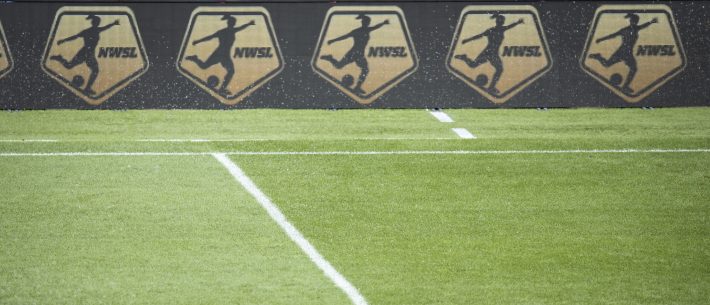
Becky Sauerbrunn said she had a similar experience with Ellis. "When she was named head coach, I thought 'there goes my career,'" Sauerbrunn said in a 2021 interview with Kelley O’Hara for the Just Women’s Sports podcast. Ellis had previously cut her from the under-21 youth national team.
"I remember the feedback really well," Sauerbrunn said of when Ellis had cut her. "It was one, you’re too slow to be a center back, and two, you don’t have a presence on the field."
Ellis didn’t cut Sauerbrunn from the USWNT, and she went on to become a co-captain in 2016. "But I still felt like, 'Ooh, don’t ever get beat in a foot race' … so I still don’t feel super comfortable," she said. In 2018, Ellis re-assigned Sauerbrunn’s co-captaincy in 2018 to Carli Lloyd.
But few have gone into as many specifics of their relationship with Ellis as Megan Rapinoe, who covered that relationship in her 2021 memoir, One Life. She wrote that the night before the 2015 World Cup final Ellis asked to see her. When Rapinoe walked into Ellis’s hotel room, she was greeted with a reel of negative clips, playing Rapinoe’s worst moments of the tournament. When it ended, Ellis asked if Rapinoe thought she should be starting or on the bench.
“No, I told her; you shouldn’t start me on the bench,” Rapinoe wrote. “I need to be in the starting lineup.”
Rapinoe wrote that she left the meeting rattled: "The night before the biggest match of my career, you’ve shown me all these negative things about myself, and now that’s all I have in my mind."
Rapinoe clashed again with Ellis and U.S. Soccer in 2016 after Rapinoe’s decision to kneel during the national anthem to protest racism and police brutality in the U.S. in solidarity with then-San Francisco 49er Colin Kaepernick. The federation asked if there was any other way for Rapinoe to protest without kneeling. She said no, and Rapinoe said U.S. Soccer media officers gave her the OK.
A few days later, the USWNT played again in Atlanta. Ellis told Rapinoe she would not start due to her performance in the last match, a 9-0 win over Thailand. When Rapinoe pushed back, she wrote in her memoir that Ellis cited her protesting and "safety." Rapinoe didn’t dress for the USWNT again until the summer of 2017 and, when she did come back, Ellis called her behavior questionable, and her attitude during training toxic.
Rapinoe wrote that she didn’t believe Ellis, but she knew what was happening: It was Ellis’s way of telling her to back off.
"I was never quite sure where I stood with Jill," Rapinoe said. The environment created by Seattle Reign head coach Laura Harvey was one of support and encouragement, she said, but the USWNT environment was colder. "I never felt in safe hands with Jill."
